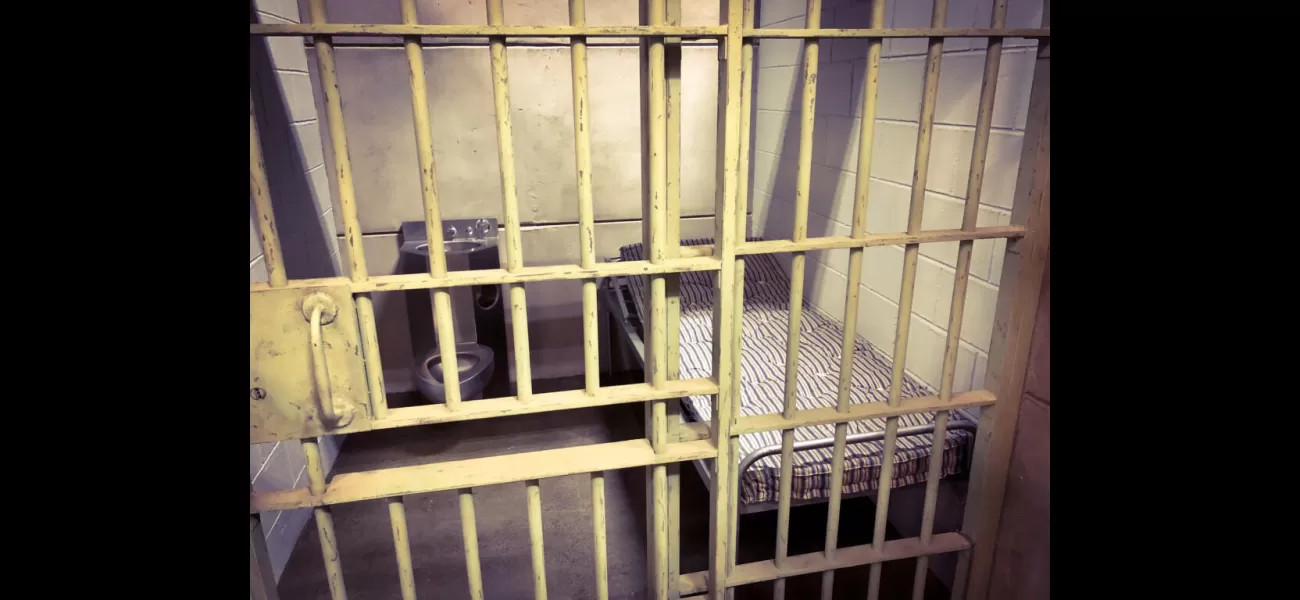The article examines the perilous jobs that American prisoners are compelled to do.
Study uncovers risky, unpaid jobs imposed on US inmates, putting their lives at risk.
May 18th 2024.

A recent investigation has shed light on the dangerous and potentially life-threatening jobs that prisoners in America are forced to do, often without fair compensation. The Associated Press released a comprehensive report on May 16th, delving into the history and impact of prison labor, which has been likened to modern-day slavery and has disproportionately affected people of color. The existence of laws that allow private companies to exploit incarcerated individuals has resulted in a multibillion-dollar industry with little oversight.
Every year, hundreds of thousands of prisoners are assigned to hazardous jobs with little to no training, earning only a few cents per hour or sometimes nothing at all. These tasks can range from fighting wildfires and operating heavy machinery to working on large-scale farms and meat-processing plants. Despite the obvious risks involved, these workers are often denied basic rights and protections that would be granted to the average American employee.
As a result, many prisoners have suffered serious injuries or even lost their lives while on the job. These individuals are not eligible for workers' compensation benefits or protected by state and federal health and safety laws, making their situations all the more precarious. Furthermore, many of the companies benefiting from this cheap labor supply chain are well-known corporations such as McDonald's, Target, and Walmart.
Unfortunately, the true extent of workplace injuries and deaths among prisoners is largely unknown due to fear of retaliation from prison staff. The state of California, for example, only reported 700 work-related injuries between 2018 and 2022, but the Associated Press noted that the documents provided were heavily redacted. This lack of transparency makes it difficult to hold companies accountable for their role in this exploitative system.
Blas Sanchez is just one of many prisoners who have suffered at the hands of this unjust system. While working at Hickman's Family Farms, his leg became trapped in a machine he was operating, resulting in a below-the-knee amputation. Hickman's is a major supplier of eggs for companies like McDonald's and Target, as well as their own branded products. Despite the severity of his injury, Sanchez only received minimal compensation and assistance.
Lawyer Joel Robbins, who has represented several prisoners employed by Hickman's, expressed his concern for these workers, stating, "They end up being mangled in ways that will affect them for the rest of their lives." He also emphasized the importance of coming out of prison with a good resume, but this is nearly impossible when one has suffered permanent injuries.
Many companies implicated in this exploitative system have chosen not to respond to inquiries about their ties to prison labor. However, Cargill, the largest private company in the US, has claimed that it is actively working to ensure that there is no prison labor within its extended supplier network. Despite this, the reality is that most prison labor takes place within the confines of the facility, with workers earning mere cents per hour. Even when prisoners are able to work outside of the prison, they often face significant deductions from their already meager wages.
Prison laborers who refuse to participate in these jobs may face retaliation, and organizing strikes or forming unions is not an option for inmates, as ruled by the US Supreme Court. Additionally, the challenges of filing a lawsuit against these companies are daunting, as the federal Prison Litigation Reform Act has made it more difficult for prisoners to seek legal recourse. The investigation conducted by the Associated Press involved interviews with over 100 current and former prisoners, as well as their family members, lawyers, researchers, and experts. Thousands of documents were also examined, including rare lawsuits that managed to navigate the court system.
In most states, public institutions are not held accountable for injuries or deaths of incarcerated workers. As law professor Michael Duff put it, "We've got this category of human beings that can be wrongfully harmed and yet left with no remedy for their harm." This exploitation of prisoners for profit is a disturbing reality that must be addressed and rectified.
Every year, hundreds of thousands of prisoners are assigned to hazardous jobs with little to no training, earning only a few cents per hour or sometimes nothing at all. These tasks can range from fighting wildfires and operating heavy machinery to working on large-scale farms and meat-processing plants. Despite the obvious risks involved, these workers are often denied basic rights and protections that would be granted to the average American employee.
As a result, many prisoners have suffered serious injuries or even lost their lives while on the job. These individuals are not eligible for workers' compensation benefits or protected by state and federal health and safety laws, making their situations all the more precarious. Furthermore, many of the companies benefiting from this cheap labor supply chain are well-known corporations such as McDonald's, Target, and Walmart.
Unfortunately, the true extent of workplace injuries and deaths among prisoners is largely unknown due to fear of retaliation from prison staff. The state of California, for example, only reported 700 work-related injuries between 2018 and 2022, but the Associated Press noted that the documents provided were heavily redacted. This lack of transparency makes it difficult to hold companies accountable for their role in this exploitative system.
Blas Sanchez is just one of many prisoners who have suffered at the hands of this unjust system. While working at Hickman's Family Farms, his leg became trapped in a machine he was operating, resulting in a below-the-knee amputation. Hickman's is a major supplier of eggs for companies like McDonald's and Target, as well as their own branded products. Despite the severity of his injury, Sanchez only received minimal compensation and assistance.
Lawyer Joel Robbins, who has represented several prisoners employed by Hickman's, expressed his concern for these workers, stating, "They end up being mangled in ways that will affect them for the rest of their lives." He also emphasized the importance of coming out of prison with a good resume, but this is nearly impossible when one has suffered permanent injuries.
Many companies implicated in this exploitative system have chosen not to respond to inquiries about their ties to prison labor. However, Cargill, the largest private company in the US, has claimed that it is actively working to ensure that there is no prison labor within its extended supplier network. Despite this, the reality is that most prison labor takes place within the confines of the facility, with workers earning mere cents per hour. Even when prisoners are able to work outside of the prison, they often face significant deductions from their already meager wages.
Prison laborers who refuse to participate in these jobs may face retaliation, and organizing strikes or forming unions is not an option for inmates, as ruled by the US Supreme Court. Additionally, the challenges of filing a lawsuit against these companies are daunting, as the federal Prison Litigation Reform Act has made it more difficult for prisoners to seek legal recourse. The investigation conducted by the Associated Press involved interviews with over 100 current and former prisoners, as well as their family members, lawyers, researchers, and experts. Thousands of documents were also examined, including rare lawsuits that managed to navigate the court system.
In most states, public institutions are not held accountable for injuries or deaths of incarcerated workers. As law professor Michael Duff put it, "We've got this category of human beings that can be wrongfully harmed and yet left with no remedy for their harm." This exploitation of prisoners for profit is a disturbing reality that must be addressed and rectified.
[This article has been trending online recently and has been generated with AI. Your feed is customized.]
[Generative AI is experimental.]
0
0
Submit Comment





